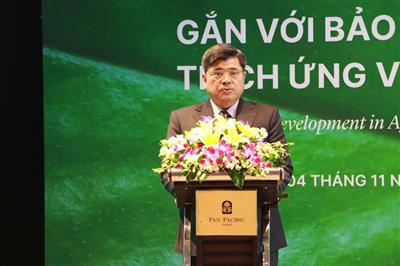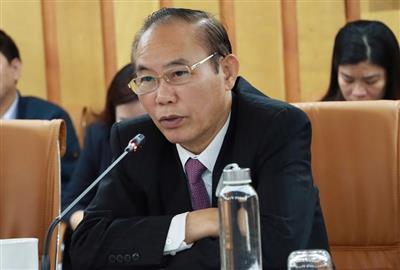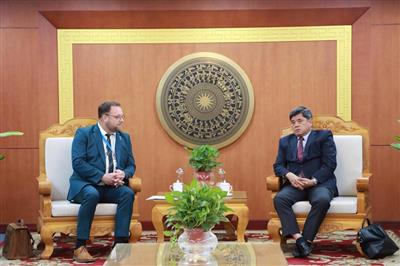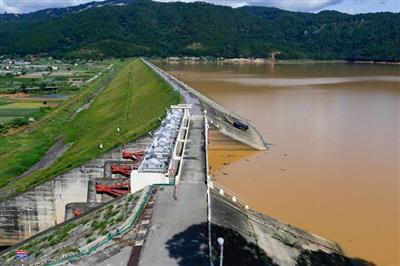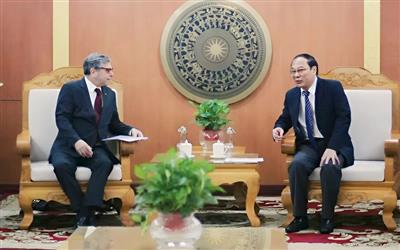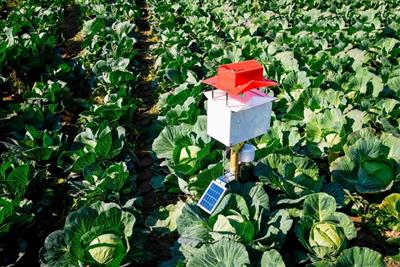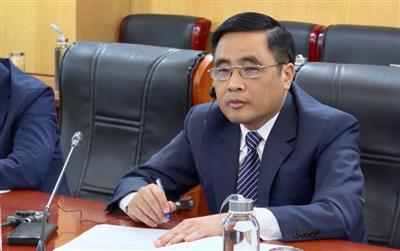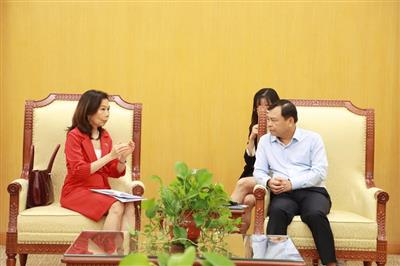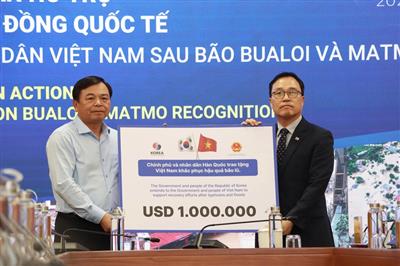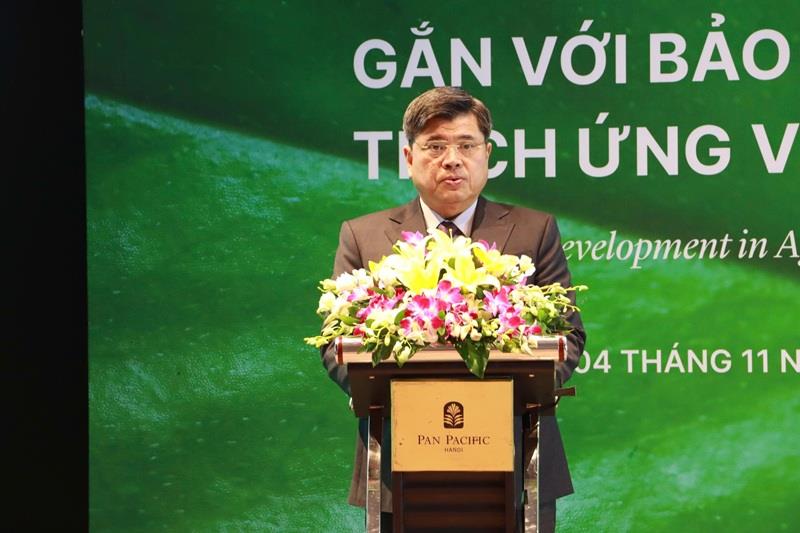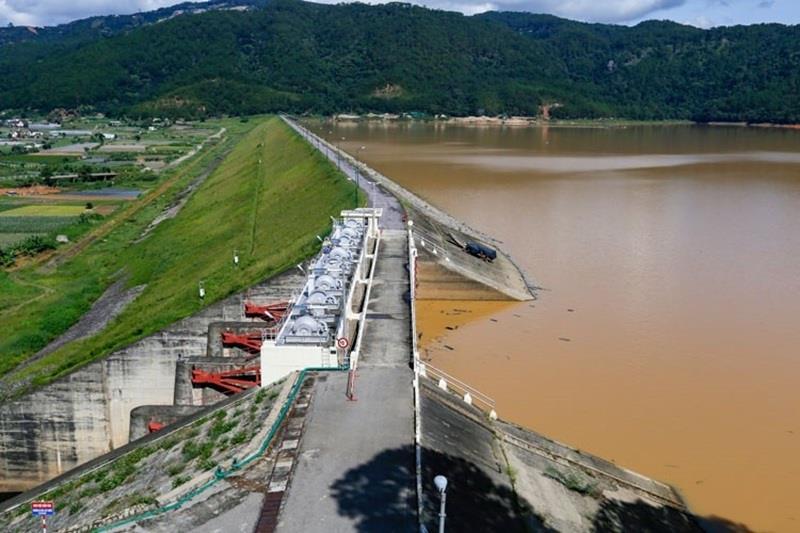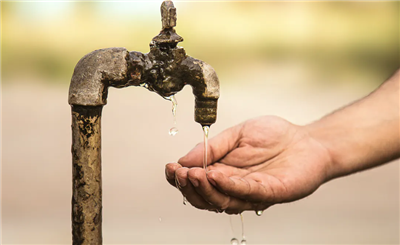
Vietnam - Cuba agricultural cooperation expands from rice to new sectors
03/09/2025TN&MTOn September 3, at the Ministry of Agriculture and Environment, Acting Minister Tran Duc Thang held talks with the Cuban Minister of Agriculture, Ydael Jesús Pérez Brito. Both sides affirmed that agriculture remains a central pillar of bilateral cooperation. Building on the positive outcomes of pilot rice production models and the potential to expand into other areas, the two countries expressed their determination to deepen collaboration toward food security and sustainable development.
Achievements in Vietnam – Cuba agricultural cooperation
At the meeting, Acting Minister Tran Duc Thang emphasized that the comprehensive partnership between Vietnam and Cuba has always been nurtured and strengthened by the Parties, States, and peoples of both countries. Agriculture, he stressed, is one of the key pillars of this relationship. Vietnam stands ready to share experiences, provide support, and accompany Cuba in its efforts to secure food supplies.
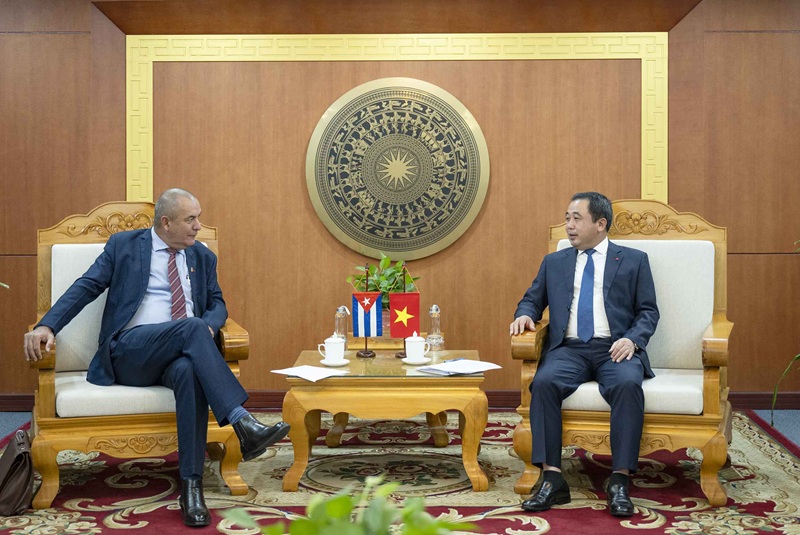
Acting Minister Tran Duc Thang met with Cuban Agriculture Minister Ydael Jesús Pérez Brito in Hanoi on September 3. Both sides affirmed agriculture as a key pillar of bilateral ties and pledged to expand cooperation from rice to other sectors for food security and sustainable development (Photo: Minh Thanh)
The Cuban Minister of Agriculture expressed his gratitude to be in Vietnam during the National Day celebrations on September 2 and conveyed admiration for Vietnam’s achievements in socio-economic development and international integration. He underlined that the Vietnam – Cuba relationship is a special and enduring friendship, forged in times of hardship and continuously reinforced. Vietnam is currently Cuba’s second-largest trading partner and its biggest Asian-Pacific investor.
In recent years, rice cooperation has produced notable results. With Vietnam’s assistance, Cuba has implemented several pilot production models, reaching yields of 6–7 tons per hectare, significantly higher than in the past. In 2025, Cuba plans to expand the pilot rice-growing area to about 500 hectares.
Alongside these efforts, another model has been launched in collaboration with Vietnamese enterprises to establish agricultural input supply stores providing fertilizers and plant protection products. This approach has helped Cuban farmers access stable supplies with payment in foreign currency, while creating opportunities for Vietnamese businesses to engage more deeply in the value chain.
Cuban Minister Ydael Jesús Pérez Brito acknowledged the efforts of AgriVMA, which has pioneered the leasing of 1,000 hectares of land in Cuba to cultivate the CT16 three-line hybrid rice variety. The first crop achieved high yields and demonstrated clear economic benefits. This success highlights the feasibility of scaling up Vietnam–Cuba agricultural investment cooperation.
Opportunities and new expectations
According to Minister Ydael, Cuba has around 200,000 hectares of agricultural land suitable for rice, but only 20,000–30,000 hectares are cultivated annually. With national consumption demand at about 600,000 tons per year, the Cuban Government aims to increase the cultivated area to 100,000 hectares annually in the coming years. This presents significant opportunities for Vietnamese enterprises.
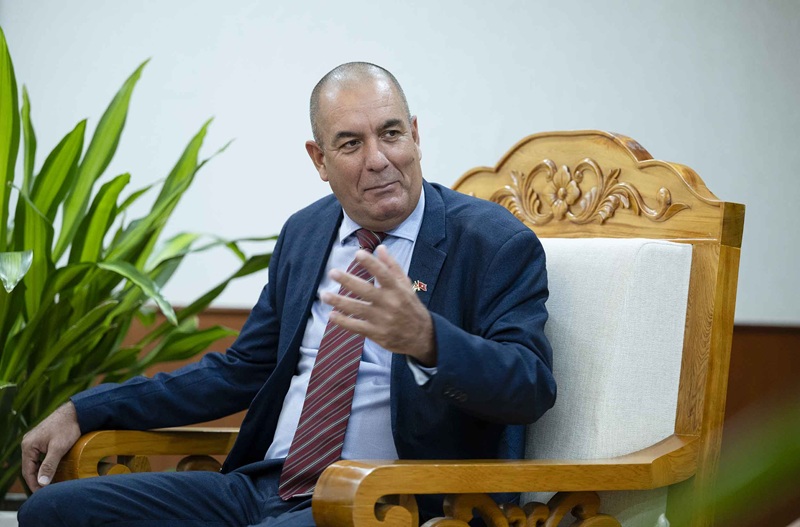
Cuban Agriculture Minister Ydael Jesús Pérez Brito said Cuba plans to expand rice cultivation from 20,000–30,000 to 100,000 hectares, creating major opportunities for Vietnamese enterprises (Photo: Minh Thanh)
To encourage investment, Cuba has introduced preferential policies: long-term land allocation, permission to directly hire local labor, exemption from import duties on agricultural inputs, and guaranteed payment in foreign currency. Minister Ydael affirmed that Cuba is committed to mobilizing resources to support Vietnamese enterprises in rice production.
Looking beyond rice, Acting Minister Tran Duc Thang proposed expanding cooperation into beekeeping, livestock, and aquaculture. Both sides agreed to increase exchanges of experts, jointly develop high-quality hybrid rice varieties, and launch collaborative projects in vaccines, biological products, and technologies for crops and livestock.
Minister Ydael stressed that Cuba has the capacity to research and produce agricultural biological products and expressed a desire to work closely with Vietnam to leverage this strength. He also highlighted the importance of scientific cooperation between the Cuban Ministry of Agriculture and the Vietnam Academy of Agricultural Sciences, now in its fifth phase, and voiced hope that this collaboration will continue to expand.
A long-term commitment
Prior to the Cuban Minister’s visit, on August 25, Deputy Minister of Agriculture and Environment Phung Duc Tien held talks in Hanoi with Cuban Deputy Minister of Agriculture Telce González Morera. The two sides reviewed progress, notably a pilot project covering 1,000 hectares of rice, with plans to expand to 2,500–3,000 hectares with the direct participation of Cuban farmers. Deputy Minister Phùng Đức Tiến reaffirmed Vietnam’s commitment to providing resources, technology, and expertise to support large-scale rice production in Cuba, with the shared goal of ensuring food security.
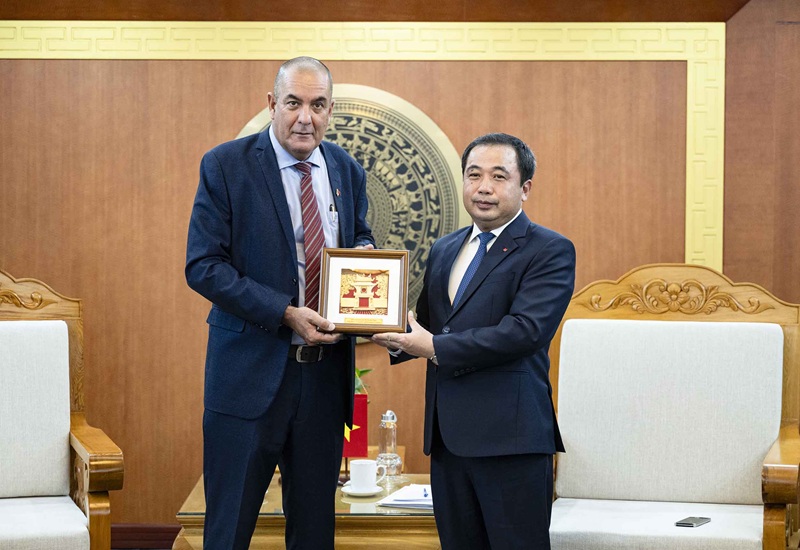
“Acting Minister Tran Duc Thang presented a souvenir to Cuban Agriculture Minister Ydael Jesús Pérez Brito (Photo: Minh Thanh)
Over the years, Vietnam and Cuba have implemented numerous cooperation programs that have laid a solid foundation for bilateral ties. Since 1999, the rice cooperation project has helped Cuba establish seed production systems and bring high-yield rice varieties (6–8 tons per hectare) into widespread cultivation, meeting a substantial share of domestic food needs.
In aquaculture, Vietnam has transferred technologies for farming monosex tilapia, carp, white-leg shrimp, and Caribbean lobster, boosting production volumes. Pilot models for coffee, maize, and beans have also recorded yields two to three times higher than local varieties; intensive coffee farming alone has reached 2 tons per hectare, compared with just 250 kilograms previously.
The two sides have also advanced cooperation in agricultural extension, expert exchanges, scientific research, and biotechnology, with close collaboration between the Cuban Ministry of Agriculture and the Vietnam Academy of Agricultural Sciences. Numerous agreements and action plans have been signed, spanning crop development, aquaculture, veterinary medicine, and animal quarantine, taking bilateral cooperation to new depths.
Concluding the meeting, Acting Minister Tran Duc Thang reiterated: “Vietnam deeply values Cuba’s enduring solidarity in the past and is committed to standing side by side with Cuba in the new stage of development.” He affirmed that the Ministry of Agriculture and Environment will continue working with enterprises to address challenges and promote projects based on the potential of both countries. With strong political will and active engagement from the business community, Vietnam–Cuba agricultural cooperation is expected to grow further, contributing to long-term food security and better livelihoods for the peoples of both nations.
Khanh Linh - Ngoc Huyen




